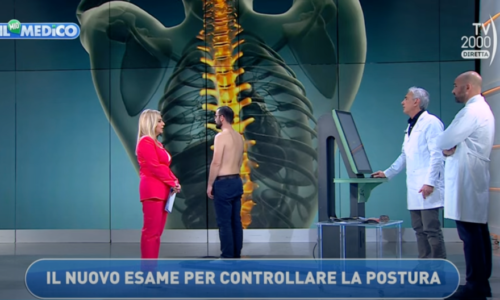
Waking up with back pain: here’s what you need to know
It is well known: sleep is essential for both mental and physical recovery. In spite of this, there are people who go to bed without feeling any discomfort, but who, when they wake up, experience symptoms in the spinal column. Then there are all those people who already suffer from back pain and who experience a worsening of symptoms in the morning. Back pain is one of the most disabling pains, it compromises a person’s wellbeing (including mental wellbeing), and it is no coincidence that it is one of the main causes of loss of productivity (in both private and work-related terms). Starting the day already with nagging pain is certainly not good for anyone.
Why do we experience these pains early in the morning? We will simply explain which are the main factors that can contribute to morning pain and how you can prevent them. A series of short articles dedicated to your well-being. Because a good start to the day can only make everything easier!
How back pain manifests itself when you wake up
Given that there is no fixed pattern, back pain can obviously manifest itself differently depending on the causes and, above all, on the area affected. Certainly one of the most recurring pains (especially in the morning) is the one we frequently experience in the lumbar region (lumbago, that very annoying pain involving the lower back). But the onset of pain in the cervical area (cervicalgia), recognisable because it affects the back of the neck, is also very frequent.
But there are pains that can also radiate to other parts of the body, since from the lumbar region, for example, the discomfort can also reach the buttocks and legs. It is not uncommon, in such cases, that the sciatic nerve, which runs from the lumbosacral tract of the spine down the leg, may become irritated. Conversely, neck pain, cervicalgia, may extend to the head, shoulders and arms.
Back pain and its duration. Let’s look at the differences
Pain can also be distinguished according to its duration, how long it occurs. Here is a quick diagram in which we summarise the various differences.
- Acute pain (up to about one month in duration). This is pain that occurs suddenly and usually resolves within a few days or a few weeks at most. It has specific characteristics: it usually occurs between the lower edge of the costal arch and the lower gluteal folds, and may occasionally radiate to the thigh (never beyond the knee). In some cases it may limit the performance of daily activities.
- Subacute pain (usually persists beyond four weeks, up to three months). It is not particularly different from acute pain, but it is a pain that lasts much longer and is therefore much more disabling in carrying out recurring activities.
- Chronic pain. This is the worst situation. The pain does not pass and persists for a very long time, well over three months. Resolving pain in its chronic phase is much more complex (which is why we always suggest not allowing too much time to pass without consulting a doctor).
When does back pain occur in the morning?

Usually the first symptoms of back pain occur after we get up, the moment we start our activities. It is the most frequent form of pain, the mechanical type, and it is felt the moment our body starts moving again. It is a pain that in most cases is a consequence of injuries to the spinal column, intervertebral discs or soft tissue. This type of back pain is characterised by a pain that improves with rest and worsens with movement (yes, even with the first movements in the morning, when we do not expect to be in top form!).
Just to give a concrete example, the early hours of the morning turn out to be the time when the onset of an episode of acute low back pain is most frequent.
Also in the morning, we can suffer from an annoying rigidity of the spinal column of short duration accompanied by pains that intensify as the day progresses. This is undoubtedly due to degenerative back pain. A typical example of this is arthrosis.
But there is also morning back pain – less frequent – which can be of an inflammatory type. This form even does not improve with rest, but during the night it can continue to bother us, not letting us sleep, not letting us rest properly. One of the consequences, in addition to stress and fatigue, is an obvious morning stiffness that can last for more than thirty minutes and only improves with movement. Usually this type of back pain presents itself in a chronic form and thus manifests itself for more than a quarter.






